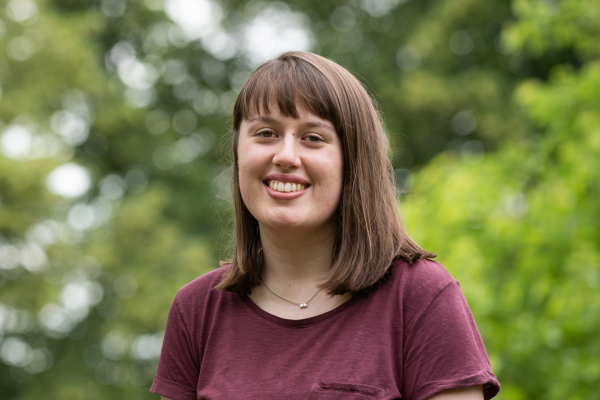
Philanthropic support has allowed PhD student Amy Holt to explore how aspirin could improve bowel cancer treatments.
I’ve always found cell biology fascinating: the way that cells work, how they build us as human beings and how they can cause disease. It’s what drew me to studying cancer. By learning about what goes wrong in cancer cells, we also learn a lot about normal cells and how they should function.
Bowel cancer has one of the highest mortality rates of any cancer, because it’s often detected at quite a late stage. Researchers have established that taking aspirin for long periods of time decreases your risk of developing bowel cancer. But what we don’t know is exactly why that is. Throughout my PhD, my research group and I have been exploring how aspirin influences cellular functions to make cells less likely to become cancerous and to slow the progression of a cancer.
One of the really interesting things that I have found is that when you treat cancer cells with aspirin, they appear to become more sensitive to drugs that target metabolism. As an idea it makes a lot of sense: cancer cells metabolise differently to normal cells, so if you could find a way to target that process then in theory you could treat the cancer. Our data suggests that aspirin might sensitise cancer cells to a drug called CB-839, which is showing some success in clinical trials at the moment. If we could combine these two drugs to increase their effectiveness, then we could potentially improve treatments for people living with bowel cancer.
One of the best things about being a PhD student at Bristol is being able to work with so many incredible people. I’m part of an amazing research group and my supervisors, Professor Ann Williams and Dr Emma Vincent, have been so supportive. There’s no doubt that doing a PhD is challenging, so having that group of people around you who are genuinely interested in what you’re doing and want to help you makes all the difference.
My PhD has been funded through the generosity of University supporters John Maynard (BSc 1969) and Bridget Maynard, and by the James Tudor Foundation. It’s hard to put into words the impact that philanthropically funded PhDs can have. Laboratory research is extremely expensive and we wouldn’t be able to do what we do without the backing of the University’s brilliant supporters.
When you support funded PhD projects you don’t just provide an incredible opportunity for a student like me, you help train scientists for the future and contribute to important areas of research that ultimately could save lives.
